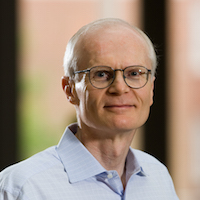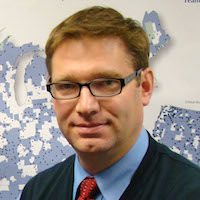Rural patients who receive medical care far from home less likely to go to nursing facilities near where they live
April 26, 2019
Many patients who live in rural areas travel to urban hospitals for acute care. A recent study has found that many of these rural patients subsequently obtain post-acute care from skilled nursing facilities (SNFs) and hospitals that are not near their homes – and the further away the hospital, the less likely patients are to return to their home community for SNF care.

Abby Hoffman
Abby Hoffman, a doctoral student in the Department of Health Policy and Management at the University of North Carolina at Chapel Hill’s Gillings School of Global Public Health, is lead author of the article “What Characteristics Influence Whether Rural Beneficiaries Receiving Care From Urban Hospitals Return Home for Skilled Nursing Care?”, published recently in the Journal of Rural Health. Mark Holmes, PhD, and George Pink, PhD, both professors in the Department of Health Policy and Management at the Gillings School and senior research fellows at the UNC Cecil G. Sheps Center for Health Services Research, are co-authors on the paper.

Dr. George Pink

Dr. Mark Holmes
The study grew out of a project from the Sheps Center’s N.C. Rural Health Research Program, which was commissioned by the Federal Office of Rural Health Policy to conduct research on rural post-acute care, including skilled nursing care. The project found that rural residents who went to an urban hospital only received rural post-acute care about half the time.
“Usually patients prefer to receive health care near home. That way, they avoid travel, their friends and relatives can visit, and their lives may be less disrupted overall,” said Hoffman. “We wanted to understand why rural residents in urban hospitals often received post-acute care away from home. Was it something about the hospitals, the health care market or the patients themselves?”
Hoffman said that new Medicare policies give hospitals a stake in post-acute care. For example, most hospitals receive penalties if their patients are readmitted within 30 days, potentially incentivizing them to encourage patients to stay near the treating hospital for their skilled nursing care following a hospital stay.
There are several reasons why patients may receive skilled nursing care away from home, she added. Sometimes more distant hospitals may encourage patients to stay in a known SNF near the treating hospital (versus receiving post-acute care in their community) to better coordinate care. It also is possible that patients may travel to more distant hospital care in order to be closer to a relative, like an adult child, and so are similarly choosing to receive their SNF far from home.
“Using our research methods, we can’t tell the difference between those two scenarios. This finding, however, both provides a basis for additional research into the topic and cautions policy makers and those studying alternative payment models to take into account potential side-effects of changing payment,” said Hoffman. “When hospitals have a stake in post-acute outcomes, patients may be less likely to receive care near home.”
Contact the Gillings School of Global Public Health communications team at sphcomm@listserv.unc.edu.
